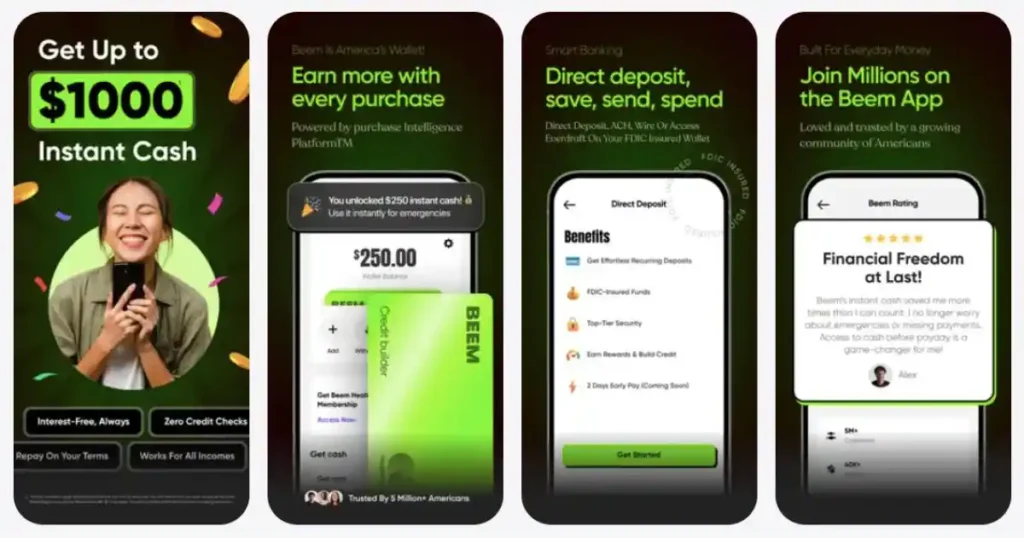Table of Contents
Why Operations & Fleet Management Is a Smart Next Step
The logistics industry is booming. From e-commerce to food delivery, there’s an ever-growing need for professionals who can deliver packages and manage the complex systems behind the scenes. To meet this demand, it’s crucial to upskill in Operations and fleet Management, gaining the expertise needed to optimize delivery logistics, monitor vehicle performance, and lead team coordination as companies scale.
This creates a golden opportunity for delivery drivers on the front lines. Many drivers already possess firsthand knowledge of the delivery process, like how routes are handled, the challenges on the road, and what makes an efficient operation. This experience is a strong foundation for transitioning into roles that have a broader strategic impact. Moving into operations or fleet management offers career growth, better pay, more stable hours, and long-term potential in the supply chain field.
Read on to explore what these roles entail, the skills required, and how you can successfully make the shift.
Understanding Operations and Fleet Management Roles
Operations and fleet management roles involve overseeing delivery schedules, vehicle maintenance, driver teams, and logistics efficiency. These positions require strategic planning, regulatory compliance, and leadership to ensure smooth, cost-effective operations within a growing and fast-paced supply chain environment.
What Do Operations and Fleet Managers Do?
Operations and fleet managers are the people who keep logistics running smoothly behind the scenes. Their wide-ranging responsibilities include overseeing delivery schedules and ensuring efficient and timely routes. They help manage vehicle maintenance to minimize downtime and keep the fleet in top condition. They coordinate driver teams, dispatch operations, and warehouse logistics. They ensure compliance with local, state, and federal regulations, manage costs, and find ways to improve operational efficiency.
Key Differences from Driving Roles
If you’ve been behind the wheel as a delivery driver, you’ve mastered the art of being on time, safe, and customer-friendly. Operations and fleet management, however, shift the focus from execution to strategy. Instead of being the person making deliveries, you’ll be the one coordinating them by analyzing data, managing people, planning, and working with technology. There’s also more emphasis on leadership, decision-making, and systems thinking.
Read related blog: Delivery Drivers: How to Train for Logistics Careers
Essential Skills for Operations and Fleet Management
Transitioning into operations or fleet management builds on your delivery experience, it’s not a fresh start. You’ll expand your skills by developing leadership, organization, and problem-solving abilities, allowing you to move from frontline execution to strategic planning and team coordination roles.
Leadership and Team Coordination
Managing a team requires strong leadership skills. You’ll supervise drivers, dispatchers, and warehouse personnel, delegating tasks and monitoring performance. You must also motivate your team, build morale, address conflicts professionally, and maintain a positive work environment. These characters will help the team get stronger and stay coordinated.
Tech Savvy and Data Analysis
Gone are the days of whiteboards and handwritten logs. Modern fleet management relies heavily on technology like GPS and telematics systems for route tracking and performance data. Fleet management software to monitor vehicle usage, maintenance schedules, and delivery stats. Using analytics tools to track KPIs like delivery time, fuel efficiency, and cost per mile.
Planning, Organization, and Problem-Solving
Operations managers are master planners. Their role involves scheduling drivers and routes efficiently to maximize coverage and minimize costs. They must also stay ahead of maintenance needs and compliance deadlines and handle unexpected issues like breakdowns, weather delays, or staffing shortages. Thinking on your feet and staying organized are must-have skills in this line of work.
Read related blog: Movers: Upskill for Logistics & Transportation Management
Upskilling Strategies for Delivery Drivers
Your experience as a delivery driver is a strong starting point. With a little extra effort, you can prepare yourself for management roles that demand more responsibility and offer greater rewards.
On-the-Job Learning and Cross-Training
Start by learning from the people around you. Shadow operations managers or fleet supervisors to understand their daily tasks. Rotate through roles in the warehouse, scheduling desk, or maintenance bays if your company allows it. Ask to assist with dispatching or route planning on slower days. This hands-on exposure gives you a real-world education and helps you stand out as someone eager to learn.
Formal Training and Certifications
Many community colleges and trade schools offer relevant programs that can fit into your work schedule. These certifications can help you in the long run.
You can look into formal training like:
- Online or in-person logistics, supply chain management, or business operations courses.
- Certifications like Certified Transportation Professional (CTP), Certified in Logistics,
- Transportation and Distribution (CLTD) or DOT safety certifications.
Soft Skills Development
Operations managers are not just number crunchers but communicators, negotiators, and leaders. When working with vendors or team members, you’ll need to sharpen soft skills like clear and professional communication, leadership, and negotiation skills. Practicing conflict resolution and customer service, especially during high-pressure situations. Attending workshops, webinars, or even YouTube tutorials can be great resources for honing these skills.
Read related blog: Emergency Cash For Delivery Drivers: A Step-by-Step Guide
Steps to Stand Out and Get Promoted
To stand out and get promoted, take the initiative by volunteering for extra tasks, building strong relationships with management, and seeking mentorship. Document your achievements with measurable results and consistently demonstrate leadership, teamwork, and a proactive attitude toward professional growth.
Volunteering for Extra Responsibilities
One of the best ways to get noticed is to ask for more responsibility. Look out for opportunities and offer to help with scheduling or vehicle logs. Volunteer to lead safety meetings or propose process improvements. Take ownership of a small team project to show your leadership potential. Management often looks for initiative when promoting from within.
Building Relationships with Management
Get to know your supervisors and communicate your career goals – ask for feedback and let them know you’re interested in a management track. Seek mentorship from someone already in operations and attend company events, training sessions, and networking opportunities within the logistics sector. Being proactive shows you’re invested in your future and the company’s success.
Documenting Achievements and Growth
Documenting and keeping track of your accomplishments will help you learn and grow. Whether you’ve improved delivery times, customer feedback scores, or saved fuel by optimizing routes, if you’ve reduced incidents or improved safety compliance, document those metrics. When promotion time comes around, having proof of your contributions can make a big difference.
Overcoming Challenges in the Transition
Moving from driver to manager involves challenges such as adapting to technology, managing administrative duties, and leading peers. Success lies in embracing change, learning new tools, strengthening leadership, and staying confident, communicative, and open to continuous professional growth.
Adapting to Technology and Office-Based Work
Adapting to technology and office-based work can be a significant shift for those used to being on the road. Start by familiarizing yourself with digital logistics tools like fleet management software, scheduling platforms, and analytics dashboards. Don’t hesitate to ask for help or shadow more experienced colleagues. Begin with small tasks to build your confidence.
Managing Teams and Change
Stepping into a leadership role, especially among peers, can be tricky. You’ll need to know how to balance authority with empathy, gain respect by being fair and consistent, and lead change effectively, even when others are resistant. Training and mentorship can help you develop the confidence and skills needed to succeed.
Read related blog: Front Desk Associates: Upskill for Hotel Careers
How Beem Can Support Your Career Growth
Beem makes managing your career advancement easy by helping you budget for courses and certifications. By linking your bank accounts, Beem automatically creates a personalized budget plan tailored to your income and expenses, from rent and groceries to transportation and entertainment. It tracks your training progress, shifts, and career milestones, keeping you organized.
Beem also sends timely reminders for important events like applications, interviews, and performance reviews. With alerts that help you avoid overdrafts, NSF fees, and other financial pitfalls, Beem takes the stress out of budgeting. After approval, Beem instantly transfers funds into your account so you can focus on growing your career without worrying about cash flow delays.
FAQs – Delivery Drivers Upskilling for Operations & Fleet Management
What skills do delivery drivers need for fleet management roles?
Delivery drivers with fleet management roles need strong leadership, communication, and organizational skills. Proficiency in fleet management software, GPS tracking, and data analysis tools is essential. Understanding vehicle maintenance, regulatory compliance, and route optimization also plays a key role. Equally important are problem-solving abilities and the capacity to manage teams effectively.
Are certifications required for operations management?
Certifications aren’t always mandatory but are highly beneficial for advancing into operations management. Earning credentials like the Certified in Logistics, Transportation, and Distribution (CLTD) or Certified Transportation Professional (CTP) shows a strong commitment to the field.
How can I gain experience in operations while driving?
To gain experience in operations while driving, start by volunteering for extra responsibilities like helping with dispatch, scheduling, or reporting. Ask to shadow supervisors or rotate through warehouse or maintenance tasks. Communicate your interest in management and seek mentorship from operations leaders.
What challenges should I expect in the transition?
You’ll need to adjust to less physical, more tech-focused work and learn new systems and administrative processes. Managing former peers may feel awkward initially, and leading teams comes with added responsibility. With strong communication, continuous learning, and a willingness to adapt, these challenges become growth opportunities on your leadership journey.
How does Beem help with career advancement?
By linking your bank accounts, Beem automatically creates a personalized budget that helps you manage your finances and save for courses and certifications. It tracks your training progress, work shifts, and career milestones, keeping you organized and focused. The app also sends timely reminders for key events like job applications, interviews, and performance reviews.
Conclusion: Drive Your Career Forward – Move into Operations Management
Transitioning from delivery driver to operations or fleet manager is possible and a brilliant, realistic career move. In today’s fast-growing logistics industry, companies seek to promote employees who understand the field from the ground up. Your hands-on experience gives you a unique advantage.
By focusing on upskilling, staying adaptable, and taking initiative, you can position yourself for long-term success. Whether it’s improving leadership, learning tech tools, or gaining certifications, every step you take builds your readiness for management.
Continuous learning is key, and platforms like Beem make accessing relevant training, certifications, and tools designed for logistics professionals easier than ever. Whether shadowing a supervisor, joining a training program, or volunteering for new tasks, you’re already on the path. Download the app here!














































